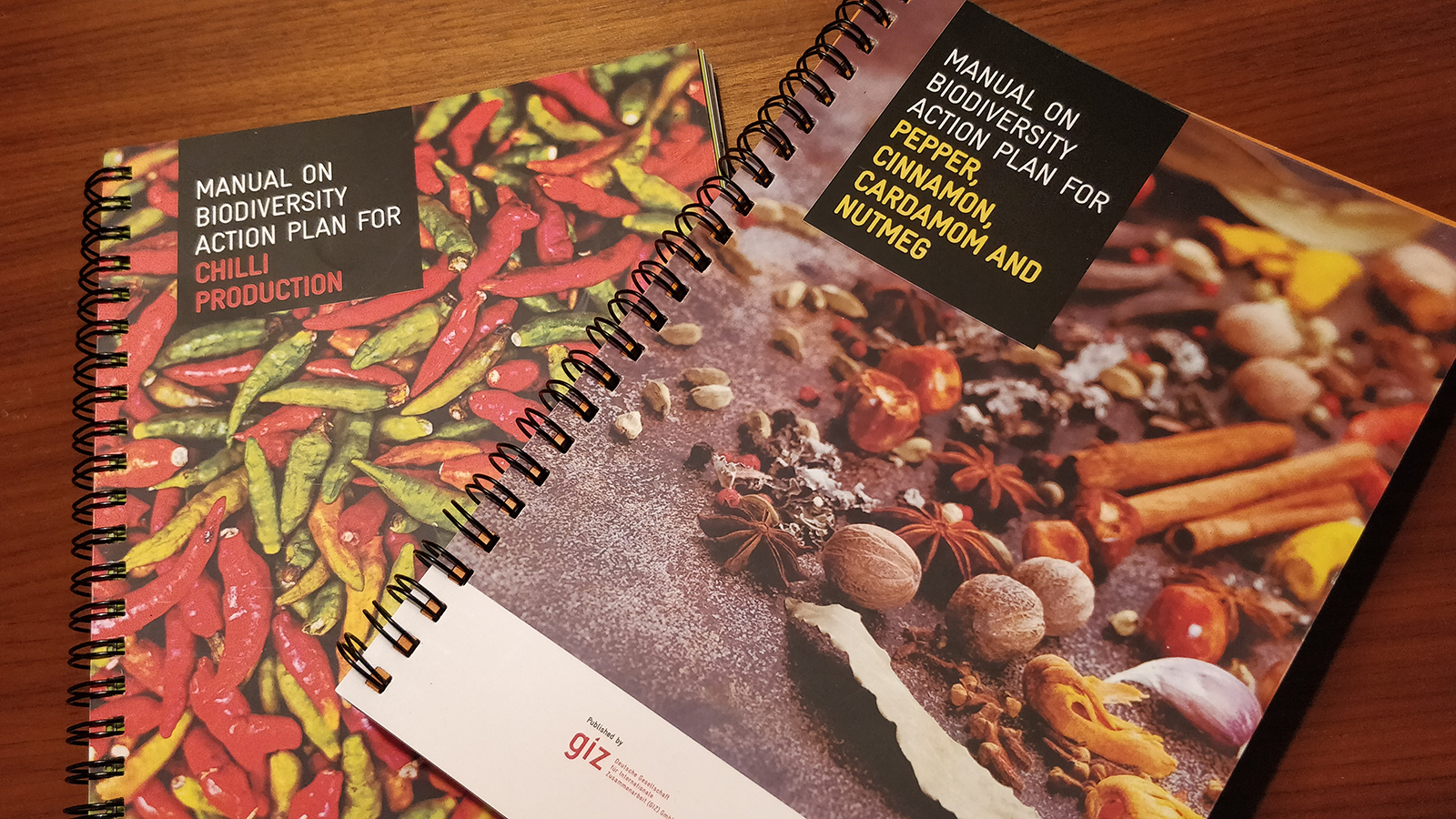Biodiversity Action Plans
 Integration of Biodiversity Action Plan by Spice Industry as Management tool in their supply chain
Integration of Biodiversity Action Plan by Spice Industry as Management tool in their supply chain
They say that variety is the spice of life. Unfortunately, that is exactly what we seem to be losing in the Indian spice sector. Precious spices like black pepper, cardamom, nutmeg, and cinnamon, which grow in the Western Ghats, are losing their biodiversity quotient due to intensification of production and excessive use of pesticides. These are accompanied by environmental degradation in the form of forest clearance, watershed contamination, soil pollution and pesticide residues in crops. However, spices can be grown in a biodiversity-friendly manner. Chemical pesticides can be replaced with natural repellents and the natural biodiversity of the region can be used innovatively to bolster production. The same spices that were cultivated in the earlier days, can be cultivated again using mixed cropping methods.
The global Private Business Action for Biodiversity project, in collaboration with Global Nature Fund (GNF), developed Biodiversity Action Plans for Spices, specifically- black pepper, cinnamon, cardamom, nutmeg, and Chilli. These manuals guide farmers on developing a BAP to implement stronger biodiversity management practices within the agricultural production system and use biodiversity friendly agricultural practices.
A Biodiversity Action Plan (BAP) provides guidance in designing and implementing concrete practices on the sustainable use and conservation of biodiversity when growing and sourcing natural raw materials. It provides a strategic framework and road map, providing measures to improve biodiversity on the farm. BAPs also contribute to compliance with different standards in the supply chain of spice production and set the standard for continuous improvement in the production and sourcing practices of spice industries.
By Dr Poonam Pande http://indo-germanbiodiversity.com/articles-details-4.html

